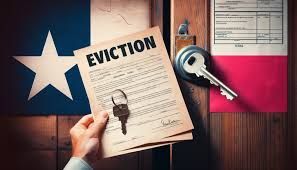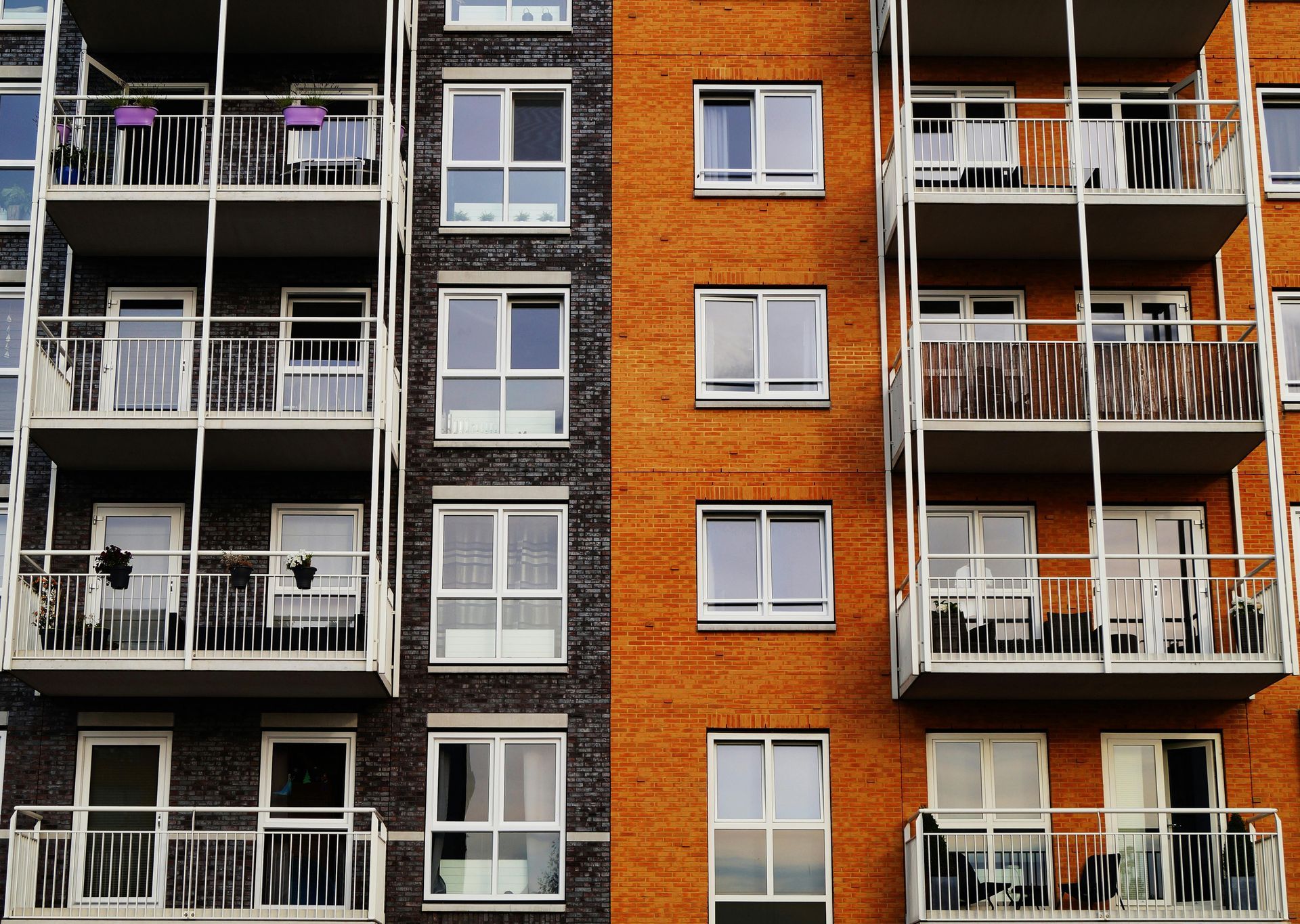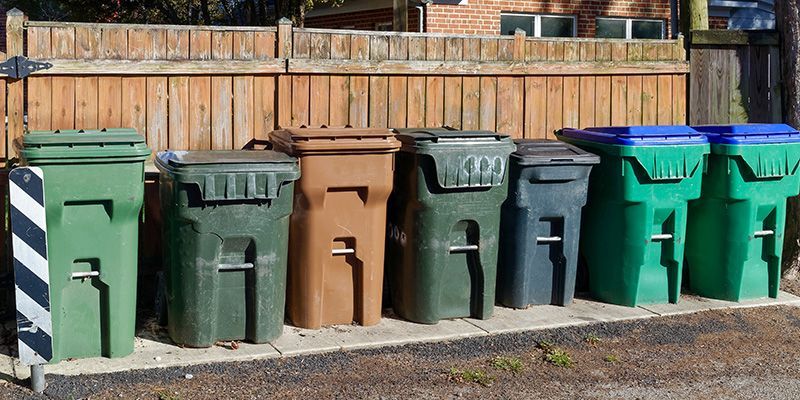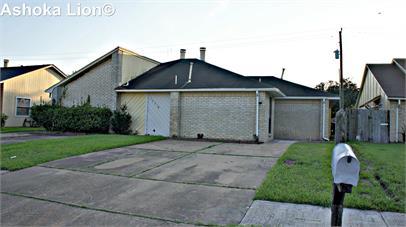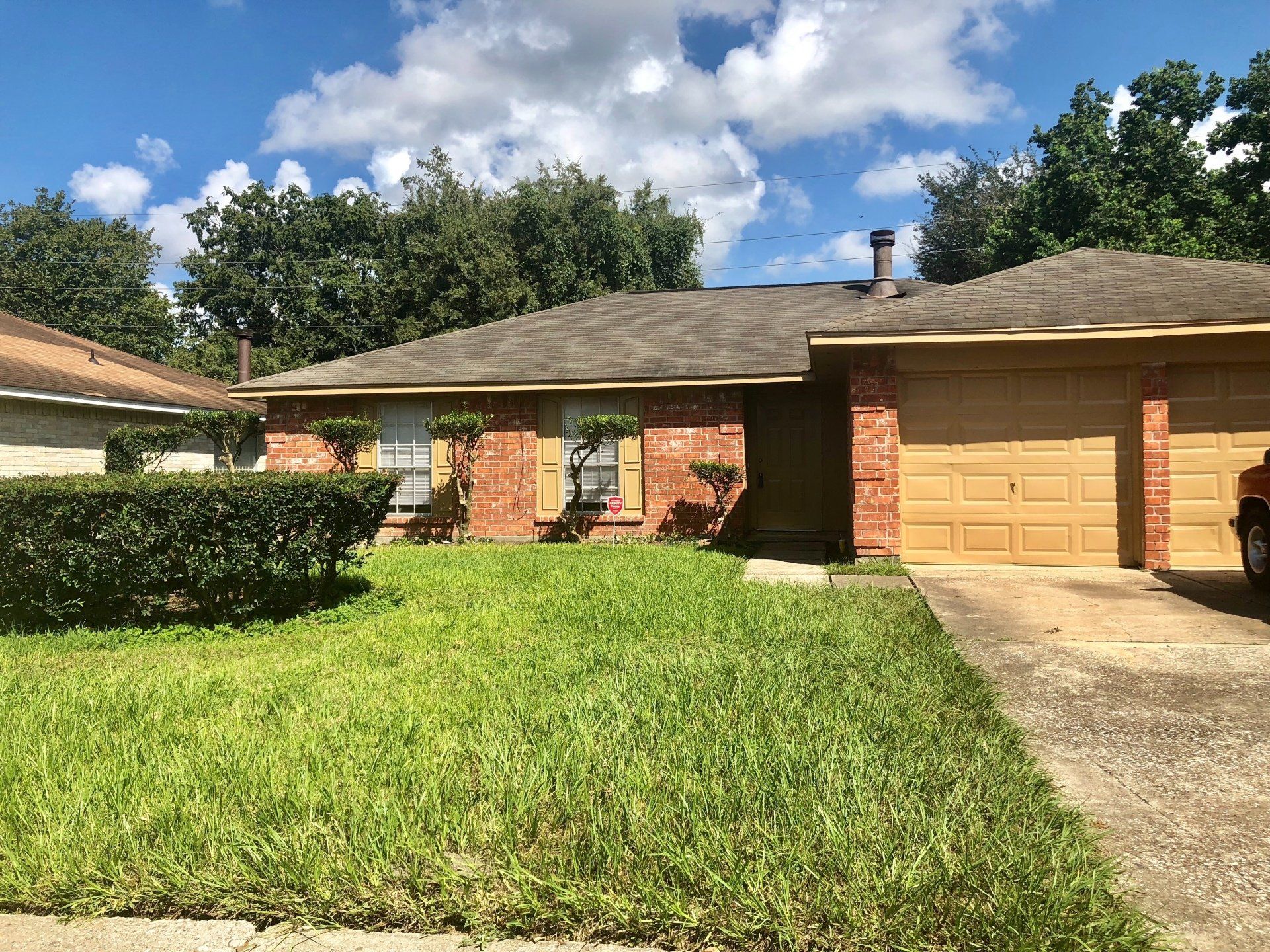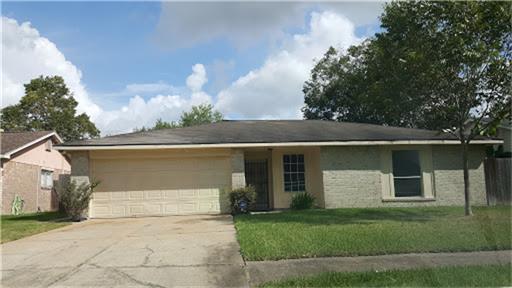HOA and Rental Property Management News and Updates
Ashoka Lion Property Management Insights

How to Protect Your Pipes From Freezing Using Household Items Frozen pipes are one of the most common (and expensive) winter problems in homes and apartments. The good news? You don’t need special tools or professional equipment to help protect your pipes. With a few common household items and a little time, you can significantly reduce the risk of freezing. Why Pipes Freeze Pipes freeze when temperatures drop below 32°F (0°C), especially in unheated or poorly insulated areas like: Under sinks Near exterior walls In basements, crawl spaces, or garages When water freezes, it expands. That expansion can cause pipes to crack or burst, leading to leaks or flooding once they thaw. Household Items You Can Use to Wrap Pipes If you don’t have pipe insulation on hand, these everyday items can help keep pipes warmer: 1. Towels, Rags, or Old Clothes Thick fabric helps trap heat around the pipe. Use towels, washcloths, socks, or old T-shirts Wrap them snugly around exposed sections of pipe Secure with tape, string, or rubber bands Tip: Layering is better than a single thin wrap. 2. Newspapers or Cardboard Paper provides basic insulation by slowing heat loss. Wrap several layers of newspaper around the pipe Cover with a plastic bag or plastic wrap to keep it dry Tape it securely in place Dry insulation works much better than wet insulation. 3. Blankets or Fleece Throws For larger pipe sections or multiple pipes: Cut an old blanket or fleece into strips Wrap loosely but fully around the pipes Secure with tape or twine Avoid blocking vents or valves when wrapping. 4. Bubble Wrap Bubble wrap traps air, which helps retain warmth. Wrap bubble wrap around the pipe (bubbles facing inward) Use tape to seal the seams Combine with fabric for extra insulation if needed Extra Steps That Make a Big Difference Wrapping helps, but these small habits add extra protection: Open cabinet doors under sinks to allow warm air to circulate Let faucets drip slightly during extreme cold to keep water moving Keep indoor temperatures consistent , even overnight Close windows and seal drafts near pipes What NOT to Do Don’t use open flames, candles, or space heaters near pipes Don’t use extension cords or heating devices around water Don’t wrap pipes so tightly that joints or valves are stressed When to Report a Problem If you notice: No water coming from a faucet Frost on exposed pipes Unusual bulging or cracking sounds Report it immediately to property management or maintenance. Final Thoughts A little preparation goes a long way. Using simple household items to wrap exposed pipes can help prevent freezing, avoid damage, and keep your home safe and comfortable all winter. If you’re unsure whether a pipe needs protection, it’s better to wrap it than risk a freeze. Stay warm! ❄️

Winter weather can be unpredictable, especially in regions that are not accustomed to prolonged freezing temperatures. While a severe winter freeze may only last a few days, the damage it can cause to homes can be extensive and costly. From burst pipes and roof damage to power outages and frozen appliances, cold weather events place homeowners at significant financial risk. This is where homeowners insurance plays a critical role in protecting both your property and your peace of mind. Understanding Winter Freeze Risks A severe winter freeze can impact a home in multiple ways: One of the most common issues during freezing temperatures is burst or frozen pipes . When water inside pipes freezes, it expands, often causing pipes to crack or burst. Once temperatures rise, water damage can spread quickly through walls, floors, and ceilings, leading to costly repairs and potential mold growth. Roofs are also vulnerable during winter freezes. Ice buildup, heavy winds, and sudden temperature changes can loosen shingles, cause leaks, or damage gutters. In homes with fireplaces or heating systems, improper use or malfunction can increase the risk of fire hazards during colder months. Power outages caused by winter storms can result in spoiled food, frozen plumbing, or damage to electrical systems. Without adequate insurance coverage, homeowners may be left to pay out-of-pocket for repairs, replacements, and temporary housing—expenses that can add up quickly. How Homeowners Insurance Provides Protection Homeowners insurance is designed to cover a wide range of risks associated with winter weather, provided the damage is sudden and accidental. Most standard policies offer coverage for: Water damage from burst pipes , as long as reasonable steps were taken to maintain heat in the home. Roof and structural damage caused by ice, snow, or wind. Fire damage related to heating equipment or electrical failures. Loss of use coverage , which helps pay for temporary housing if your home becomes uninhabitable due to covered damage. This protection can make a significant difference during a winter emergency, allowing homeowners to focus on safety and recovery rather than financial strain. The Importance of Policy Awareness Having homeowners insurance is important, but understanding what your policy covers is just as critical. Not all winter-related damages are automatically included. For example: Damage resulting from long-term neglect or lack of routine maintenance may be excluded. Losses caused by failure to maintain adequate heat in the home may not be covered. Pre-existing issues or unresolved repairs can void coverage for winter damage. Some policies require preventive actions, such as: Keeping the home properly heated during cold weather Draining pipes if the property will be vacant for an extended period Taking these preventive steps helps protect both your home and your insurance coverage. Reviewing your policy before winter arrives helps ensure there are no surprises if you need to file a claim. It is also a good time to confirm coverage limits, deductibles, and whether additional endorsements—such as coverage for sewer backups or extended replacement costs are necessary. Financial Security During Unexpected Events One of the greatest benefits of homeowners insurance during a winter freeze is financial stability. Repairing water damage, replacing flooring, fixing walls, or restoring electrical systems can cost thousands of dollars. Insurance coverage helps absorb these expenses, preventing a sudden financial burden that could disrupt long-term savings or household budgets. In severe cases where homes are temporarily unlivable, insurance can also help cover hotel stays, meals, and other living expenses. This support is especially valuable during widespread winter events when repair services may be delayed due to high demand. Encouraging Proactive Preparedness Insurance works best when combined with preparation. Homeowners should take reasonable steps to reduce winter risks, such as insulating pipes, sealing drafts, maintaining heating systems, and checking smoke detectors. Keeping documentation of home improvements and taking photos of the property can also help speed up the claims process if damage occurs. Maintaining open communication with your insurance provider is equally important. Knowing how to file a claim, what documentation is required, and who to contact in an emergency can save valuable time during stressful situations. Peace of Mind When It Matters Most Severe winter freezes are often unpredictable, but the impact they have on homes can be long-lasting. Homeowners insurance provides a safety net that protects not only the structure of your home but also your financial well-being. When freezing temperatures strike, having the right coverage ensures you are not facing repairs, displacement, or losses alone. By reviewing your policy, staying prepared, and understanding your coverage, homeowners can face winter weather with greater confidence. In the event of a freeze, homeowners insurance is not just a requirement—it is an essential layer of protection that helps safeguard your home, your belongings, and your peace of mind. Find Helpful Tips for Choosing the Right Homeowners Insurance HERE.
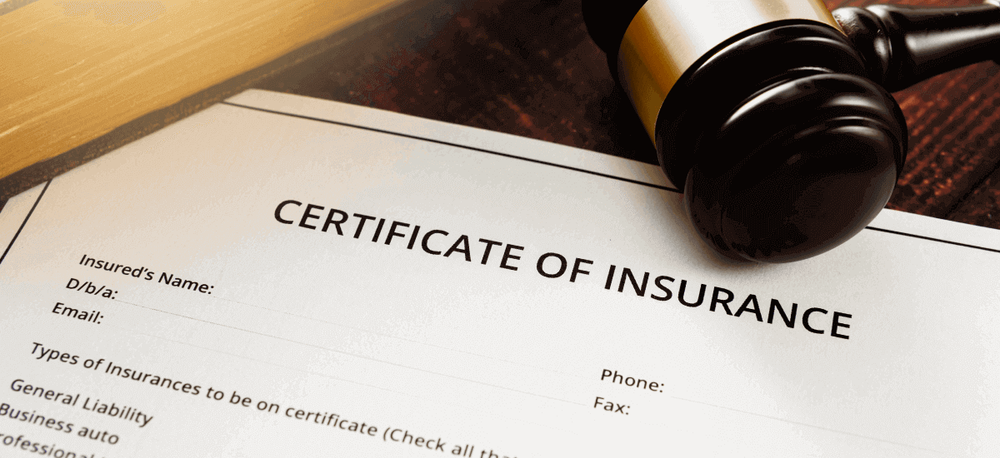
A Certificate of Insurance (COI) plays a crucial role in protecting all parties involved in a project or service agreement. Despite being a short, simple document, a COI carries significant legal and financial weight. It verifies that a business or contractor has active insurance coverage and meets the requirements established by the party requesting the work. When moving into or out of a gated community, it’s easy to focus on packing boxes, coordinating schedules, and arranging movers. However, there’s one important detail homeowners often overlook ensuring that their moving company provides a Certificate of Insurance (COI) . At Bancroft , the HOA strongly recommends that homeowners request a COI from any moving company they hire. While not a mandatory rule, this small step plays a big role in protecting both homeowners and the community . What Is a COI ? A Certificate of Insurance is an official document issued by an insurance provider or agent. It serves as proof that a contractor, vendor, or service provider has current insurance coverage. The COI typically summarizes key information, including: The types of insurance policies held Coverage limits Policy effective and expiration dates The insured party’s legal business name The insurer’s contact information Any additional insured parties, when applicable While a COI is not the insurance policy itself, it acts as a snapshot of coverage at a specific moment and is widely used across industries—from property management and construction to event planning, maintenance, housekeeping, landscaping, and more. Why Is a COI Important? COIs are essential because they help protect property owners, associations, and businesses from financial liability . When work is performed on a property especially work involving physical labor, tools, or equipment—accidents can happen. Without the proper insurance, the hiring party may be exposed to: Property damage Worker injuries Legal claims Costs arising from negligence or accidents Requesting a COI ensures the contractor has liability coverage, general insurance, and (when applicable) workers’ compensation coverage. This safeguards the hiring party from being held responsible for incidents that should be covered by the contractor’s policy. By asking movers to provide a COI, the HOA ensures that any company entering the community is covered in case of accidents or property damage. For example, a moving truck could accidentally: Scratch or damage the gate system or fencing Crack or stain the driveway or private road Hit mailboxes, curbs, or community signage Harm landscaping, irrigation systems, or shared utilities With a COI in place, the moving company’s insurer—not the HOA or homeowner—handles the repair costs. Without one, the HOA might have to file a claim under its own policy, tap into reserve funds, or even issue a special assessment to all homeowners to cover damages. Protecting Shared Community Property Just as the HOA requires vendors and contractors (like landscapers or roofers) to carry insurance, it’s equally important for moving companies to be insured. Gated communities have shared spaces —private driveways, controlled entry gates, sidewalks, and landscaped areas—that can easily be damaged during a move. Requiring or requesting a COI is a simple, proactive step that: Protects shared assets maintained by homeowner dues Avoids costly repairs or disputes over responsibility Encourages accountability from service providers While some HOAs make a COI mandatory, Bancroft takes a “request, not mandate” approach. Here’s why: 1. Legal and Practical Challenges Unlike high-rise buildings, where management can restrict elevator access, a single-family gated community cannot reasonably block a moving truck from entering. Homeowners have a legal right to access their property. Also, some residents handle their own move or hire smaller, uninsured movers. Enforcing a strict COI policy in those cases could create unnecessary conflict or legal complications. 2. Encouraging Cooperation Over Conflict The goal of the policy is to educate, not penalize . By requesting (rather than mandating) a COI, the HOA encourages homeowners to choose reputable, insured movers , protecting both their own belongings and the community’s property. This approach builds trust and promotes cooperation, rather than creating tension between residents and the HOA. Best Practice for Homeowners To help keep the community safe and protected, homeowners are strongly encouraged to: Request a Certificate of Insurance from their moving company. Ask that the COI lists Bancroft HOA as the Certificate Holder . Submit the COI to the HOA at least 48 hours before the scheduled move. This process ensures that any moving company operating within the gates is properly insured and that all parties are protected in the rare event of damage. A Shared Commitment to Care Your HOA’s COI request isn’t about adding red tape—it’s about maintaining a safe, well-protected community for everyone. By taking this simple precaution, homeowners help prevent costly damage, reduce liability risks, and ensure the community continues to look and function its best. In short requesting a COI from your moving company is a smart, simple safeguard that benefits you and your neighbors alike. If you’re planning a move soon, please reach out to the HOA office for guidance on submitting your COI. Together, we can keep Bancroft safe, well-maintained, and welcoming for all residents.
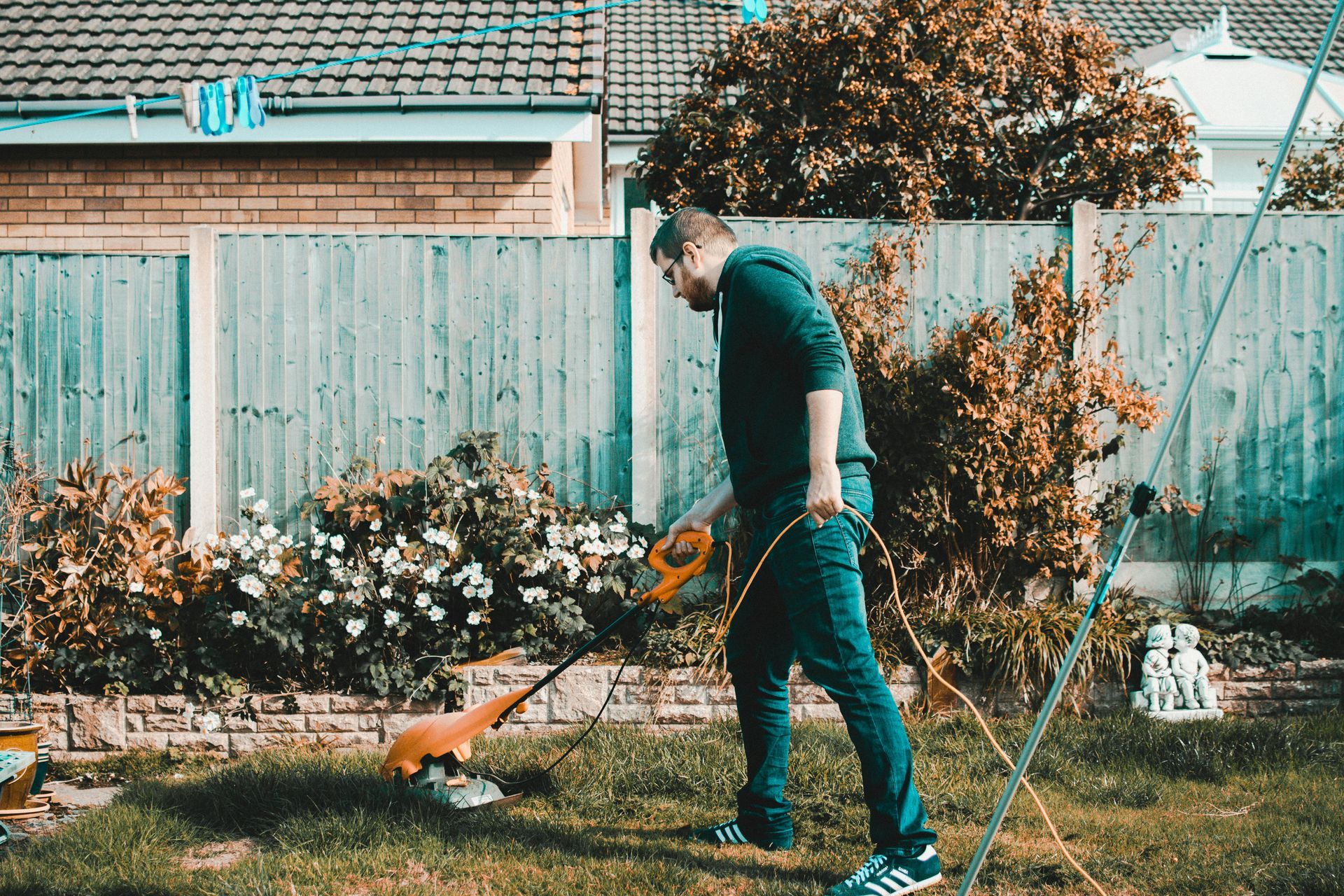
Fall is an ideal time to tackle various home maintenance tasks, helping homeowners prevent expensive repairs and unexpected issues later in the year. As temperatures begin to cool and weather patterns shift, taking proactive steps now can improve your home’s efficiency, safety, and comfort before winter arrives. In Houston, fall brings milder temperatures but also seasonal rain, falling leaves, and occasional cold snaps—all of which can impact your property if it’s not properly prepared. In addition to routine maintenance, fall is also a great opportunity to complete home improvement projects that enhance comfort and protect your investment. Addressing small issues early can save time, money, and stress during the colder months when repairs may become more urgent or costly. Below is a comprehensive checklist of key fall maintenance tasks every homeowner should consider. 1. Inspect the Roof Your roof is your home’s first line of defense against the elements. Inspect it for damaged, curling, or missing shingles, cracked flashing, or signs of wear and tear. Autumn rainstorms can worsen existing roof issues, leading to leaks or water damage inside the home. If you’re uncomfortable climbing onto the roof, consider hiring a professional for an inspection. Catching roof problems early can prevent costly repairs and interior damage later. 2. Clean Gutters and Downspouts Falling leaves and debris can quickly clog gutters and downspouts, causing water to overflow and pool around your home’s foundation. This can lead to foundation issues, water intrusion, or damage to siding and landscaping. Clear all debris and ensure downspouts are directing water several feet away from the house. Installing gutter guards can also reduce future buildup and maintenance needs. 3. Schedule HVAC Maintenance Before cooler weather sets in, schedule a professional inspection and tune-up for your heating system. A technician can ensure your furnace or heat pump is functioning efficiently and safely. Replace air filters and test your thermostat to confirm it’s working properly. Regular HVAC maintenance improves energy efficiency, reduces utility costs, and helps prevent breakdowns during peak usage. 4. Seal Windows and Doors Inspect the caulking and weatherstripping around windows and doors for gaps, cracks, or deterioration. Proper sealing prevents drafts, keeps warm air inside, and improves overall energy efficiency. This simple task can significantly reduce heating costs and make your home more comfortable throughout the winter months. 5. Test Smoke and Carbon Monoxide Detectors Fall is the perfect time to check safety devices throughout your home. Test all smoke detectors and carbon monoxide alarms, and replace batteries as needed. Since heaters, fireplaces, and gas appliances are used more frequently during colder months, working detectors are essential for early warning and peace of mind. 6. Lawn Care and Landscaping Autumn is an excellent time for lawn maintenance in Houston. Reseed and fertilize as needed, especially if your grass struggled during the summer heat. Cool-season grasses can be planted now for better growth. Rake leaves regularly to prevent mold and lawn damage. Trim shrubs and trees, removing dead or overgrown branches that could pose a risk during storms or high winds. 7. Clean and Prepare Outdoor Spaces Prepare patios, decks, and gardens for winter. Store or cover outdoor furniture to protect it from moisture and temperature changes. Clean grills, patios, and walkways to remove dirt and debris. Garden beds can be mulched to protect plants and soil during cooler weather. 8. Inspect and Service Outdoor Equipment Before storing lawnmowers, trimmers, and other outdoor equipment, clean them thoroughly and perform basic maintenance. Drain fuel, sharpen blades, and store equipment in a dry location. Proper care ensures your tools will be ready to use when spring arrives and extends their lifespan. 9. Check for Pests As temperatures drop, pests often look for warm places to nest. Inspect your home for cracks, gaps, or openings around doors, windows, vents, and foundations. Seal any entry points and keep food tightly stored. Addressing pest issues early can prevent infestations during winter when removal can be more difficult. 10. Review Emergency Kits Ensure your emergency kit is fully stocked and accessible. Include flashlights, batteries, bottled water, non-perishable food, first-aid supplies, medications, and important documents. Even though severe winter weather is rare in Houston, being prepared for power outages or storms provides peace of mind. 11. Review Insurance Policies Fall is a good time to review your homeowners insurance policy. Make sure your coverage is up to date and includes protection against seasonal risks such as storms, water damage, or flooding. Understanding your coverage ahead of time can make the claims process smoother if an issue arises. 12. Plan for Winter Weather While Houston winters are generally mild, occasional freezes can still occur. Insulate exposed pipes, disconnect garden hoses, and ensure outdoor faucets are protected. Have a plan in place for sudden temperature drops, including knowing where shut-off valves are located and how to respond to freezing conditions. By addressing these fall maintenance tasks, homeowners can protect their property, improve energy efficiency, and ensure their home is comfortable and safe for the upcoming seasons. A little preparation now can help you avoid emergency repairs, unexpected expenses, and disruptions later. Fall maintenance isn’t just about upkeep—it’s about preserving the value of your home and enjoying peace of mind all year long.

